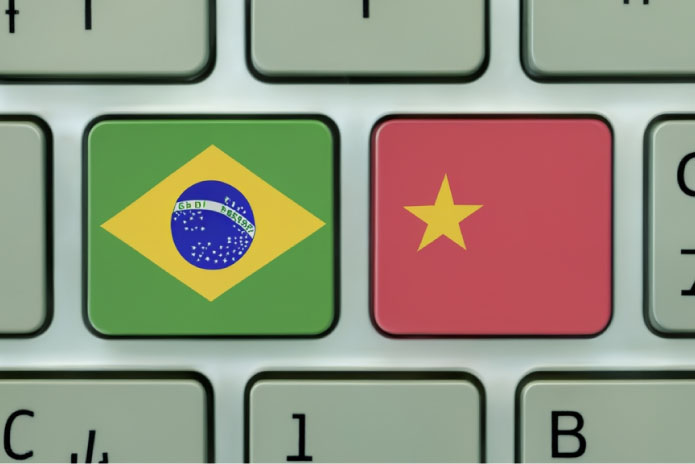The operation of Brazilian brands directly in the Chinese industrial park is already a consolidated reality. Leading this movement, a company based in Ningbo — one of Asia’s main logistics hubs — acts as the industrial arm of national companies that wish to produce in China with technical control, optimized costs, and local legal structure.
Founded by Brazilian Felipe Teixeira, an international trade specialist with over 15 years of experience in the sector, Ningbo BR Goods offers development, manufacturing, and complete management of customized industrial projects for the Brazilian market. “It’s not just about outsourcing. We act as an extension of the client’s industry, with quality control, in-house engineering, and presence in the factories,” says Teixeira, who is currently pursuing a master’s degree in Business with China and Asia-Pacific.
Verticalization strategy with agility and scale
The company’s proposal gains strength in a context where Brazilian businesses of various sizes seek to increase competitiveness through international industrial outsourcing. With over 30 manufacturing units in strategic regions of China, the company develops tailor-made solutions for sectors such as automotive, medical-hospital, agribusiness, civil construction, electronics, and consumer goods.
“The difference lies in combining product engineering with Chinese manufacturing capacity. We produce at scale but also with customization and agility, enabling us to serve both multinationals and micro-entrepreneurs who want to create their own brands,” explains the CEO.
The company oversees the entire industrial development cycle: technical planning, design, quality testing, visual customization, packaging, product manuals, and international logistics. All processes follow international standards, with ISO 9001 certification.
Ally of Brazilian reindustrialization
With growth of 137% in 2023 and 146% in January 2024, the company is preparing to expand its client base in Latin America throughout 2025. Its operations gain even more relevance amidst the renewed commercial ties between Brazil and China. Data from the Foreign Trade Secretariat (Secex) shows that Brazilian exports to the Asian country totaled $104 billion in 2024—a 10% increase over the previous year.
Additionally, the bilateral agreements recently signed between the two countries expand opportunities for small and medium-sized enterprises, promoting access to digital platforms and incentives for value-added production.
“Brazil has technical talent but faces hurdles in scaling production predictably. Our role is to eliminate these barriers with a complete industrial structure that offers legal security, project management, and prices that make sense in the long term,” emphasizes Teixeira.
Custom production as a strategic differentiator
For companies wanting to grow without sacrificing control over their products, the custom production model proposed represents an efficient alternative to generic imports. “There is a clear demand for solutions that are not overly standardized. We deliver exactly what the client designs—nothing more, nothing less. This is only possible because we are inside the factories, speaking the local language, and have our own structure,” concludes Felipe Teixeira.
The operation turns the challenge of distance into a competitive advantage. With a bilingual team, international certifications, and technical know-how about the Brazilian market, the company solidifies itself as a strategic partner for brands looking to internationalize their production with agility, security, and market differentiation.


